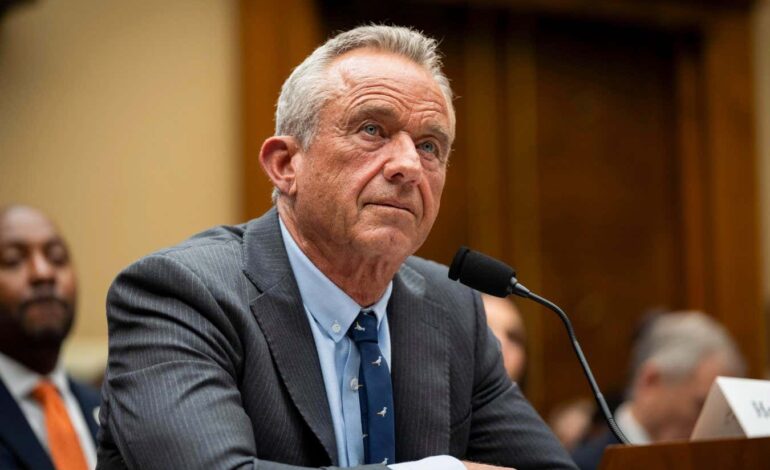US Health Secretary Claims mRNA Vaccines Ineffective, Sparks Debate

The head of the US Department of Health and Human Services, Robert F. Kennedy Jr., recently announced a significant funding cut of $500 million for mRNA vaccine development, asserting that these vaccines are ineffective against respiratory diseases such as COVID-19 and influenza. His statements have ignited controversy, as they appear to contradict established scientific evidence regarding the efficacy of mRNA vaccines.
In a press briefing, Kennedy claimed, “these vaccines fail to protect effectively against upper respiratory infections like COVID and flu.” He indicated that the agency would redirect resources toward “safer, broader vaccine platforms that remain effective even as viruses mutate.” This position raises questions, particularly given the extensive data supporting the effectiveness of many mRNA vaccines over traditional vaccine types.
Understanding Vaccine Effectiveness
Vaccines come in various forms, including live viruses, killed viruses, genetically engineered viral shells, single viral proteins, and mRNAs that code for viral proteins. The success of these vaccines often hinges more on the nature of the targeted virus than on the vaccine technology itself. For example, the MMR vaccine for measles can achieve close to 100 percent effectiveness in preventing outbreaks when over 90 percent of a population is vaccinated. This is largely due to the measles virus’s stability and the immune system’s ability to intercept it before symptoms emerge.
In contrast, respiratory viruses such as those causing colds and flu initially infect the cells lining the nose and throat, making it challenging to generate high levels of effective antibodies in these areas. This complexity complicates efforts to prevent infections and subsequent transmission. Moreover, cold, flu, and COVID-19 viruses undergo constant mutations, often evolving to evade the immune responses generated by vaccinations.
Despite Kennedy’s claims, mRNA vaccines have demonstrated substantial effectiveness. For instance, several mRNA COVID-19 vaccines were reported to be over 90 percent effective against symptomatic infections and even more effective against severe disease. In comparison, traditional flu vaccines typically show effectiveness ranging from 20 to 60 percent. Recent trials have also indicated that an mRNA vaccine combining protection against both COVID-19 and influenza outperformed existing non-mRNA flu vaccines in individuals over 50, a demographic particularly vulnerable to severe outcomes.
Evaluating Claims on Vaccine Development
Kennedy suggests that other vaccine types may better maintain efficacy as viruses mutate, hinting at the potential for developing “universal vaccines.” These vaccines aim to be effective against all strains of a particular virus, targeting the more stable components of the virus. However, achieving this goal has proven difficult, as viruses often conceal their unchanging parts beneath more variable regions. Despite decades of research, efforts to create effective universal vaccines have so far not realized significant success, indicating that prioritizing funding in this area could be misguided.
It is worth noting that mRNA technology itself can be utilized to create experimental universal vaccines, further diminishing the validity of Kennedy’s assertions. The safety, cost-effectiveness, and rapid development capabilities of mRNA vaccines present notable advantages over traditional vaccine methods. These factors are especially critical when addressing fast-evolving respiratory viruses during a pandemic.
The funding cuts proposed by Kennedy, based on his assertions regarding mRNA vaccine efficacy, could deter investment in this promising area of vaccine development. This could ultimately slow progress in developing new vaccines and treatments that leverage mRNA technology.
As the debate continues, it is vital to rely on scientific evidence and expert consensus to guide decisions regarding vaccine development and public health. The implications of Kennedy’s claims warrant thorough evaluation, particularly in the context of ongoing health challenges faced globally.






